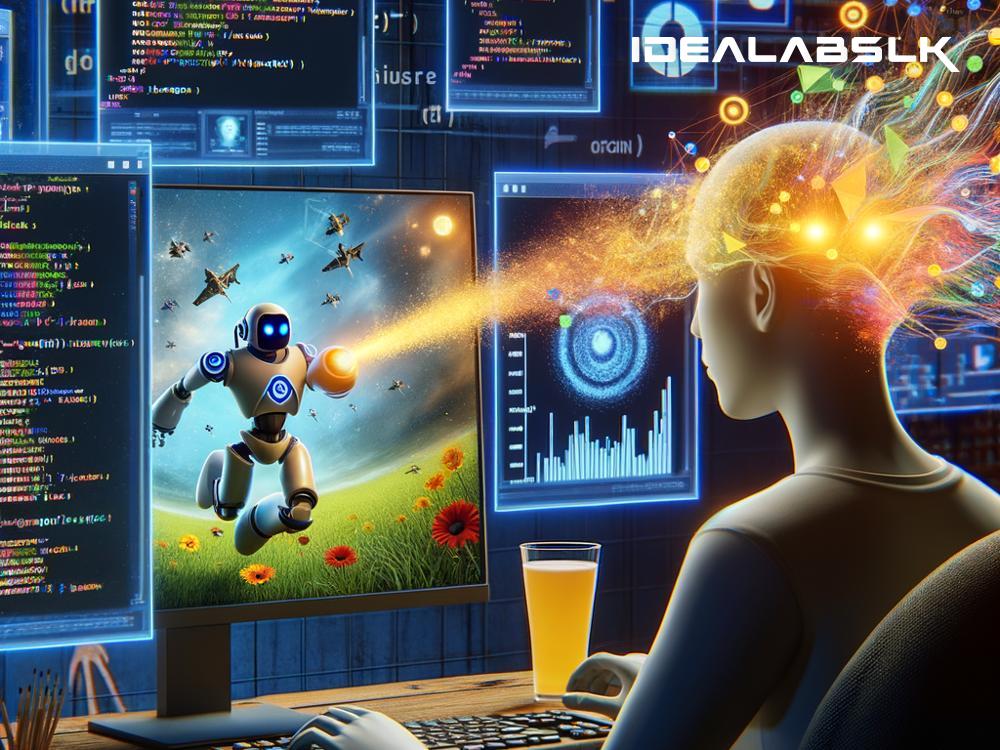How AI Will Improve AI-Based Game Testing for AAA Games Like Call of Duty in 2025
In the vibrant world of video games, AAA titles like Call of Duty shine as the crowning jewels. These games are not just a source of entertainment; they are immersive experiences crafted with incredible detail and complexity. But here's a little secret: before these games land in your console or PC, they go through rigorous testing to ensure they're as perfect as can be. And here's where AI, or artificial intelligence, enters the scene, promising to revolutionize how game testing is done, especially by 2025.
The Traditional Game Testing Scene
Traditionally, game testing has been a hands-on, labor-intensive process. Human testers play through games to hunt down any glitches, bugs, or design flaws. This method, while effective to a certain degree, has its limits. Humans can miss subtle issues, get tired, or simply not encounter every possible game scenario, especially in vast, open-world games like those in the Call of Duty series.
Enter AI-Based Game Testing
AI-based game testing introduces a game-changer into this process. AI, with its capability to learn, adapt, and execute tasks at superhuman speeds, can play through games in ways impossible for human testers. It can simulate thousands of interactions in a fraction of the time it would take a team of human testers. So, how will AI enhance game testing for AAA games by 2025? Let's dive into the specifics.
1. Identifying and Fixing Bugs Faster
By 2025, AI will likely be much more adept at identifying bugs by navigating through games in unpredictable ways, uncovering issues no human tester might encounter. This efficiency will not only be about detecting bugs but also diagnosing the underlying causes, significantly speeding up the fixing process. Game developers can then allocate more time to creative aspects, knowing that AI has the testing covered.
2. Enhancing Game Balancing
Balancing in games, especially in multiplayer titles like Call of Duty, is crucial. Everything from weapon strength, character speed, to map layout impacts the gaming experience. AI can simulate millions of gameplay scenarios, analyzing data to recommend balance adjustments. This will ensure a fair and enjoyable experience for all players, closely matching the developers’ vision.
3. Testing Player Emotions
One of the more futuristic uses of AI in game testing is monitoring and predicting player emotions and reactions to different game scenarios. By 2025, advances in AI might allow developers to understand not just if a game works, but how it makes players feel. Is a level too frustrating, or is a storyline emotionally engaging? AI can help answer these questions, leading to games that are not just bug-free, but also deeply satisfying to play.
4. Continuous Learning and Adaptation
AI systems learn from each testing scenario, becoming more efficient over time. By 2025, these systems will have accumulated knowledge from testing countless games, enabling them to predict and identify issues more accurately and quickly. This learning loop means that AI-based game testing will continuously evolve, improving with every game it tests.
What This Means for Gamers
For gamers, the impact of AI-driven game testing will be profound. Imagine booting up the latest Call of Duty title in 2025 and experiencing a game that's not only polished and bug-free but also perfectly balanced and emotionally resonant. This level of refinement could redefine gamers’ expectations, setting new standards for quality and immersion.
Final Thoughts
The path to 2025 will undoubtedly witness significant advancements in AI technology. As AI becomes more integrated into game testing, especially for AAA games like Call of Duty, the benefits will ripple through the entire gaming ecosystem. Developers will have more freedom to innovate, knowing they have a powerful tool to ensure their visions are realized flawlessly. Gamers, in turn, will enjoy experiences that are richer, more engaging, and more immersive.
In the end, AI's role in game testing represents not just an evolution in how games are developed and refined, but a promise of what the future of gaming can be. An era where the virtual worlds we escape to are as close to perfect as they can possibly be, thanks to the continuous and tireless work of artificial intelligence. And that's a future worth looking forward to for any gamer.

